Thomas "Sparrow" MoadA Story by McKenna WickwareThis is an account of Tom's life and his experience in the Vietnam War.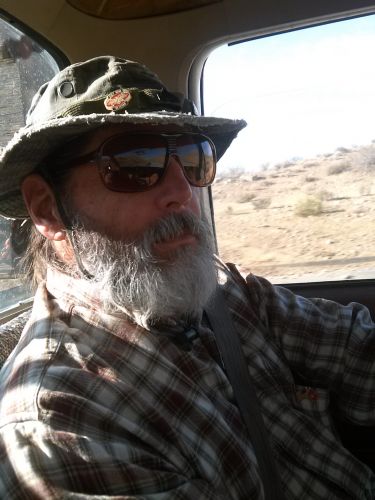 Thomas “Sparrow” Moad: “A man who fought for his country and spent the rest of his life fighting against his country.” This is the way that he described himself to me upon the first short minutes of my interview of him. Tom went from aspiring to be a priest so that he could help young people, to being a dope fiend, to a flame-tank driving military killer, to helping teach young people in his current home of Red Mountain, California. I suppose he kind of did come around to his original goal of being a priest this way, and one of the young people he impacted the most was my father. He taught my dad valuable skills, how to work hard, and opened his home to him and his brother when their parents were too messed up to care. In the era before and surrounding the Vietnam war, most father figures had served in WWII. Young men looked up to this greatly. They were all proud of their dads and wanted to serve their country to gain respect and honor. Upon returning from the war, young men received the opposite treatment. “Vietnam wasn’t that big of a bummer, coming home was.” A young Tom took the opportunity to serve his country and told them “Send me to Vietnam!” with much excitement, to be let down when he returned.
The Vietnam war was a very pivotal point in United States history. Our country’s involvement in the war was caused by the threat of communism spreading across Asia, and possibly even further eventually, and the American belief that they must protect the institution of capitalism. The American government felt as if they must protect democracy across the world. Communism was widely feared in society. During the Vietnam War, approximately �" of the American troops were volunteered, and the rest were drafted. The majority of the U.S. soldiers drafted into the Vietnam War were men who were from poor or working class families. Many soldiers came from rural or farming communities. In the beginning of the drafting for the war, many people saw “draft dodgers” as cowardly. As American casualties began to rise in numbers, American citizens began to lose hope in what the government promised. The conflict in Vietnam began to become more and more unpopular to the public. Because of this, more people got involved in the anti-war resistance and draft dodging became more popular. Since so many people were scrutinizing the war and the draft process, there was a lot of protest. People would chose to attend college upon turning 18 in order to avoid the draft, which made lower class men an even heavier target if they could not afford to attend school. Upon returning from the war, an unfortunate phenomena occurred. This was the first time in history where veterans and soldiers were looked down on by society and treated badly. Long before he was of age to serve in the war, Sparrow began as an adopted child who knew nothing of his biological family. He was adopted by a man named Robert Moad. The family he was brought up by were considered “railroad people,” and to this day Sparrow has a major passion and fascination for trains. He grew up in a poor Iowa town, but was top in his high school class. He worked on the railroad yard as a kid, and kept track of the paperwork in the office. During this time, the technology was changing, and Tom was sent to IBM school after high school so that he could keep up with it. His father, Robert, helped used the IBM punch card technology to revolutionize the supplying of the Army, and many say that is how we won WWII. Tom was sent to study in New York. His life was pretty simple at this time, until the catastrophic events at Pearl Harbor occurred. One of his teachers called him and said very vaguely, “come work for me.” This was how he was inducted into the military. The catch was that his teacher told him to come and work as his officer, and he immediately took oath over the phone. In just three short years, Thomas had become Lieutenant Colonel. Like many other young men, joining the military or being forced into it helped give Tom direction and purpose. Tom “Sparrow” Moad was in Vietnam for 16 months. He served from April of ‘68 to July ‘69. He was in the 3rd marine division and was often called by the name “bloody boots.” After just 3 months, he was titled Tank Commander PFC and had people who outranked him on his personal crew. He was in Contien located in Northern Vietnam. He told me, “ I know that country from the ocean to Laos.” As a young soldier being interjected into a completely foreign environment, everyone warned him of Contien. Everyone told him that being in the Alpha company of 3rd marine division and going to Contien was the absolute dirtiest thing you could be called to do.”Don’t worry, you’ll get your jungle boots real soon, but they’ll have blood on them.” As he said, it was the very worst place and all other soldiers spoke of it as “the place you didn’t want to go.” And it was the first place he was sent. He had to become accustomed to waking up to the North Vietnamese shooting at them every morning. This wasn’t exactly what you wanted to hear upon entering a new country at war, but Tom accepted the challenge bravely. He had a few friends that made the chaos a little bit smoother. An important character in Sparrow’s story of Vietnam is a man called Captain Wunch. He was a southern intelligence officer who spoke Chinese. He took over the reigns in operating tanks, made Contien his command post, and handpicked Sparrow to be his wingman. He used Sparrow as his second in command. He was a brave man, and a real American soldier. He would never tell his men to charge or do anything unless he was fully aware of the situation and leading them into it. That is truly what makes a good leader, especially in wartime. Another man who is important in Tom’s story is a man named Oliver North, also known as “Blues.” He was one of Sparrow’s close friends in Vietnam and he personally asked Blues to operate on his crew with him. Sparrow met Blues his first day in the military, they were both boys from California and instantly bonded. They remained close even after their time in the war was over. When asking Tom of his single most unforgettable memory from his time in Vietnam, his eyes lit up with unmatchable excitement as he reminisced. He described his favorite memory of serving in war with the phrase, “We went out looking for trouble, and we found it.” The capacity of these words truly captures Tom’s fiery and adventurous spirit. He lit up with the joy of remembering being young and mischievous, and thinking back on his glory days. He and a few members of his crew briefly branched away from the yes-sir, cross your t’s and dot your i’s lifestyle of being in the military. They broke the rules of engagement and decided to up and go to Laos. He could recall this event back to me in vivid memory, and told me that it occured on May 20th, 1969. To their surprise, they unexpectedly caught a gaggle of the enemies coming back from the Battle at Hamburger Hill. At the time, they had no idea that it was that particular battle of significance that they had crossed passed with the aftermath of. In the words of Tom “Sparrow” Moad himself, “we annihilated them.” They never received a single drop of credit for their actions because they had broken the rules of engagement and were quite frankly, in the wrong country. During this striking time in Tom’s experience, he was accompanied by Captain Wunch. In this single engagement, their men killed over 1200 enemy troops from North Vietnam. As said before, they annihilated them, and it was far from planned. Tom even told me, “Damn sure use that word! (annihilated) There wasn’t a single loss on our side!” As they returned to their original base near Contien, they passed through a Native village, and this is one of the most impressionable memories of Tom’s entire lifetime. They rolled through the quaint village of native people who had been terrorized by the North Vietnamese while perched high upon their powerful flamethrower tanks and equipped with all of their American gear and weaponry. All of the people inhabiting the village, burst out of their homes, and began cheering. These people who had never even met any of these soldiers before came from miles to cheer and adorned the path of the tanks with flowers that they tossed at them. Tom recalled this as being the most amount of praise he ever got for his service in Vietnam, and these were not even his own people. When the time for Tom to go home drew near, he was concerned with whether or not he should extend his service time to stay and help his men. Captain Wunch told him specifically, “Don’t extent. We won the war. I want to see you in the states.” Sparrow went home, and was proud of the fact that he had made the status of corporal in less then 2 and a half years. Just five days after Sparrow returned to his home country, he got the news that Captain Wunch had gotten killed in Vietnam. He told me with much certainty that this one detail, is his biggest regret. He had formed a very close bond with Captain Wunch, and it sticks with him to this day. He has to live with the things that happened in the war over 40 years ago, and explained it to me as having “survivor’s guilt.” He is still living with PTSD from the war today. “I was stupid on drugs the year I went in, and stupid on drugs the year I got out…and then I came here (Red Mountain) and cleaned up. Going from a tank commander to a hamburger flipper didn’t work very well.” He attempted to go to college when he returned, but he attended one day and then stopped because immediately everyone harassed him, calling him a “baby burner.” Red Mountain, California was a booming mining district in the 1920s. It is located in San Bernardino county and is now considered to be much of a ghost town. Tom has lived there since he returned from Vietnam and still resides there today. It is a fascinating place that has affected my family’s story greatly. In the year 1970, Tom was outside in the blazing sun polishing his Harley-Davidson motorcycle with the intent to leave Red Mountain. A man by the name of Templeton came across Sparrow in this activity because he was supposed to survey the land that he was standing on. To put it shortly, he ended up trading his motorcycle for a house there in Red Mountain at a place called Kelly Row, and his lived at Kelly Row ever since that day. Even though he traded his bike for the house, he was considered to be in “trespass” because he had never received the title for the property, even to this day. It is quite ironic how he happened to settle on the sites of an old mining district, and continued to spend the greater portion of his youth in the prospect of gold mining somewhere about 70 miles away from Kelly Row. But it wasn’t easy. Sparrow described the entirety of the journey as being “condemned for not being a miner in Red Mountain, then condemned for being a miner in the Panamint mountains.” Tom began moving up into the Panamint mountains in the late 70s, and they are still trying to do away with him! He married a girl named Roxanne Clair, and happened to marry into access to the infamous Porter Mine. Her family owned a settlement in the Panamints called "Clair Camp." The Clair's were the last people to be included by the Homestead Act. Today, it is not much more than a sorry excuse for a ghost town, but is in a breathtakingly beautiful location, and so is the mine. At first, Tom only was allotted ownership to one fifteenth of the mine, and along the way he managed to the rest of it. The mine went in Tom's name in 1991. In 19976, the Clair's sold Clair Camp, and Sparrow decided to take his journey up to the Porter Mine. The Clair family failed to file the proper paperwork to keep the ownership of the mine, and Tom took matters into his own hands. He claimed the mine himself and saved it from becoming government property and from being a part of Death Valley National Park. He took the title to town to get it signed and payed for it at the very last minute with whatever money he could muster, when the Clair's refused to handle it. Sparrow opened and began working in the mine in 1983. He was the only man to get exclusion in the Park Bill, and it was passed through congress. The Park Bill was "the most distasteful bill in Congress." Sparrow says he has been waiting 45 years for full land rights. When the Park Bill was being reviewed, a friend of Sparrow's called Senator McCain to say, "You have not handled all mining concerns! You haven't taken care of Sparrow!" It had been announced to the public that all concerns had been handled in the regards or mining, but this was not the first time that the government was deceitful. The Porter Mine was originally discovered when a Spanish man stumbled upon a massive gold rock sticking out of the ground when people were just exploring the vast natural resource opportunities in California. It is named after a man named Harry Porter, who was the first to mine it. The Porter Mine today is the last active hard rock mine on public land in all of California, and Sparrow is the one who now deserves the credit for making that possible, and being the last active hard rock miner on California's ever so regulated public lands. From Sparrow himself: "If it can't be grown, you have to mine it!" Fighting for the Porter Mine and the right to mine was definitely not an easy expedition. For many long years, and even today, Sparrow "fought against his government with a marine mentality, which they taught him." One would think that a Veteran of active war would receive much better treatment from his country.
In actively mining for gold at the Porter Mine, Sparrow did strike gold here and there. He hit a memorable pocket in 1994, but he had to dig it back up in 1995 to save the mine, again. The "Park" still wanted to take over ownership and rights to the mine, or to inhibit Sparrow from extracting gold, and he had to prove that he was actively mining and extracting materials in order to be allowed to keep it and live on the land. It is still an ongoing battle. Sparrow is still trying to patent the mine as we speak. It is a four step process, and he has only been able to complete the second step. He expressed interest to me in writing a letter to our current president, Donald Trump. He thought something like this piece of writing that spoke of his struggles in his personal journey would spark inspire justice for him as a hardworking American veteran. He feels betrayed by his country, like it was always against him even as he risked his life to fight for it. His hometown of Red Mountain, California is another example of neglect by the governement. It was home to many World War II veterans, and the according to Sparrow, the government tries to cover up how they treated the small town. Many of the veterans died without proper treatment and deserved assistance. The settlement is many miles across barren desert to any town with doctors or even grocery stores. Most people live in tiny, very outdated houses and are fairly poor. The people are still quite lively, although neglected, and live a much different lifestyle than the average American. At one point during the struggle with the mine, a company called Canyon Resources wanted to turn the Panamint Mountains into a huge mining operation for profit. The mine and the surrounding areas were also planned to be used for wilderness study areas at one point. The Park Bill was the toughest to combat. There was a lobbyist that worked for Canyon Resources that was pushing for the reign of the Park Bill. At one point, 80 people from the press came up the treacherous road to the mine to gather information on the situation. He had to give the lobbyist samples of gold from the mine to prove himself. Those specific samples got passed through congress, and he never got them back. He still saw plenty of gold with his own eyes, and he believes he has one more mining run left. I hope to see success for the mine and for Sparrow, and am lucky to have been connected to such a unique legacy, and to have seen it with my own two eyes.
I realize that this piece can not do real justice to the story of Sparrow and his endeavors in the war and with the mine. I do hope it sparks interest in others and that this story inspires and teaches.
© 2018 McKenna WickwareAuthor's Note
|
Stats
64 Views
Added on March 15, 2018 Last Updated on March 23, 2018 AuthorMcKenna WickwareNVAboutThis is for my 2018 Senior Project at Carson Highschool. My published work will be/is based upon an interview that I did of a man named Tom "Sparrow" Moad. I hope it can teach people some valuable thi.. more.. |
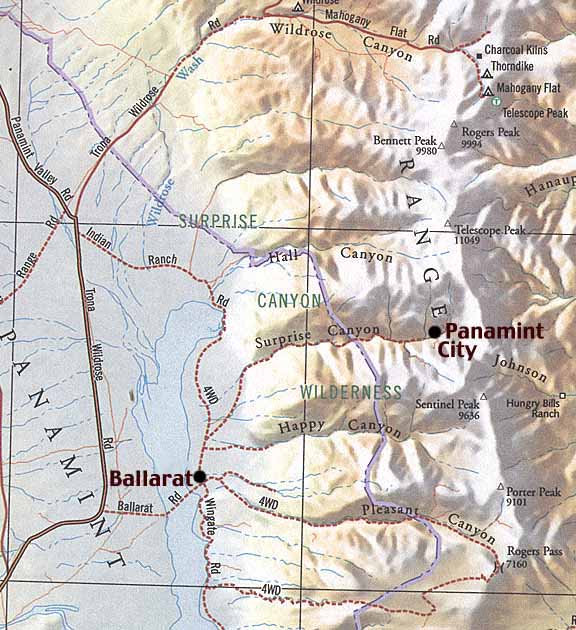
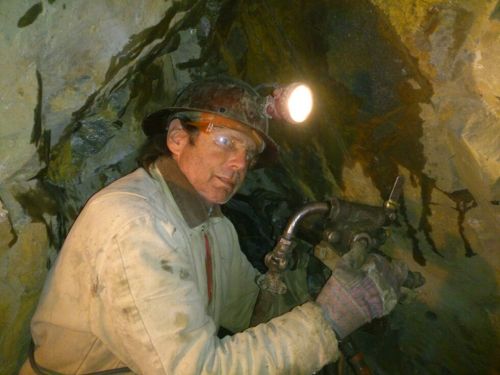
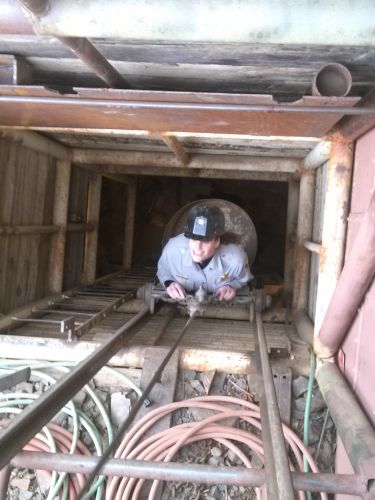
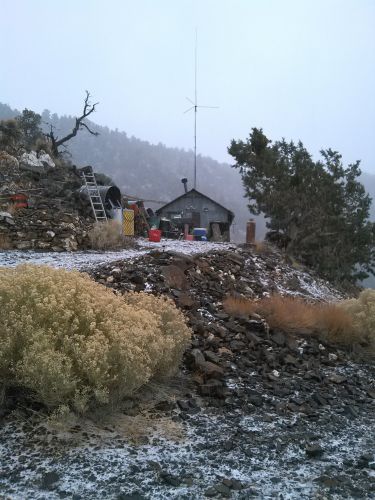
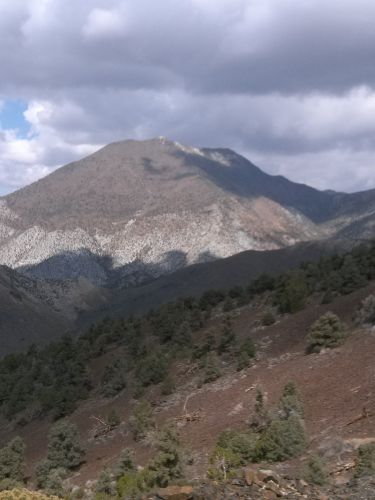
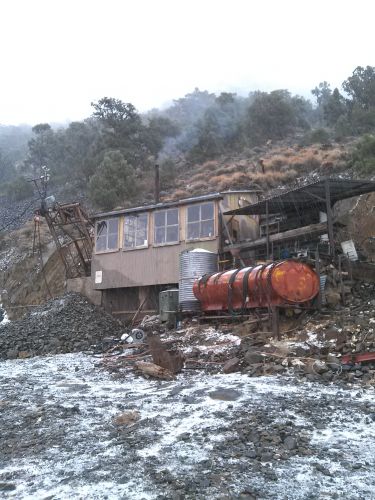

 Flag Writing
Flag Writing